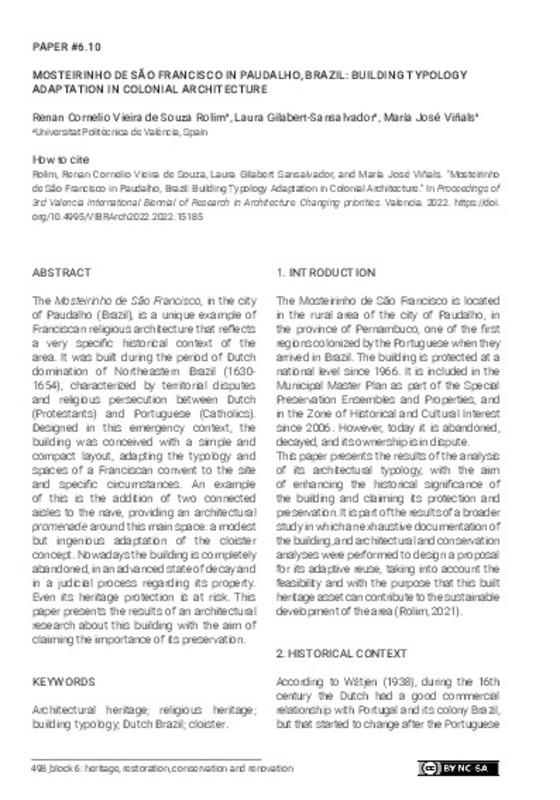JavaScript is disabled for your browser. Some features of this site may not work without it.
Buscar en RiuNet
Listar
Mi cuenta
Estadísticas
Ayuda RiuNet
Admin. UPV
Mosteirinho de São Francisco in Paudalho, Brazil: Building Typology Adaptation in Colonial Architecture
Mostrar el registro completo del ítem
Vieira De Souza Rolim, RC.; Gilabert-Sansalvador, L.; Viñals Blasco, MJ. (2023). Mosteirinho de São Francisco in Paudalho, Brazil: Building Typology Adaptation in Colonial Architecture. Editorial Universitat Politècnica de València. 498-508. https://doi.org/10.4995/VIBRArch2022.2022.15185
Por favor, use este identificador para citar o enlazar este ítem: http://hdl.handle.net/10251/201027









